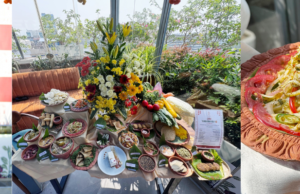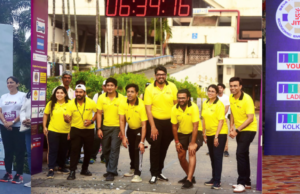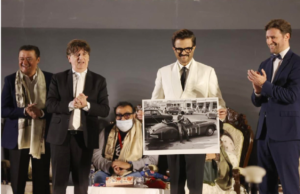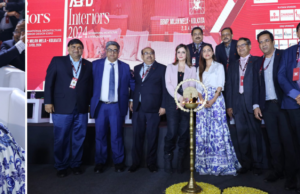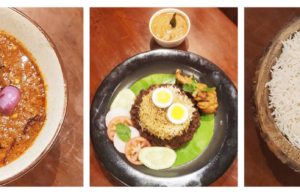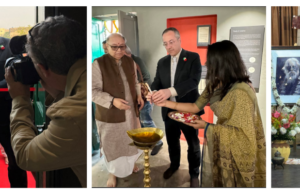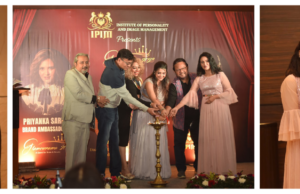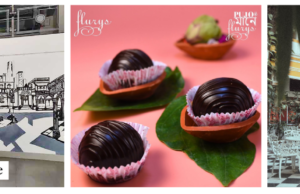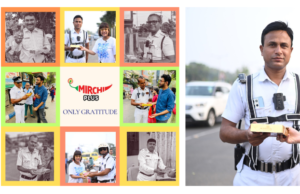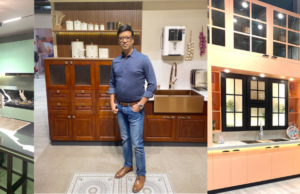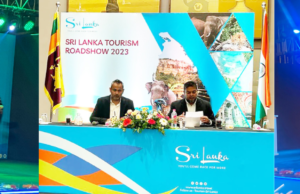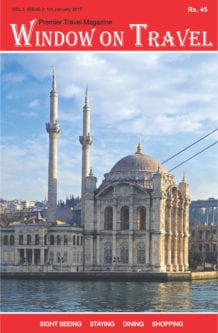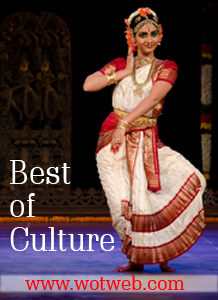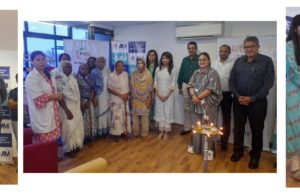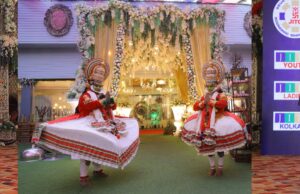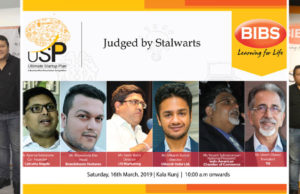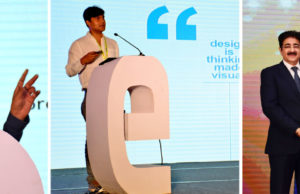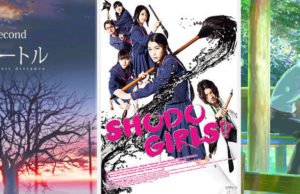
WoT's Hot
Czech Mate: Debashish and Jana Chaudhuri Romance India with Music and Partnerships
When Maestro Debashish Chaudhuri came to India last year with the 56-member Bohuslav Martinu Philharmonic Orchestra from the Czech Republic, it was to packed halls in Mumbai and in Kolkata. Growing up in Kolkata, where he learned and then gave wholeheartedly to orchestras in the city, he went on to find newer pastures, studying in countries as far flung as USA, Singapore, UK, and finally settling in the Czech Republic which is his home now for the last 15 years. That is where his close contact with the family of the famous Antonin Dvorak started. Debashish became a much sought after conductor and his wife, Jana is a renowned pianist whose concerts have received much acclaim, particularly this year.
The Czech musical connection needs a quick mention here. The first Czech opera performed right here in Calcutta at the New Empire theater in 1943 to commemorate the 25th anniversary of the Czechoslovak National Day. An initiative taken by the Batanagar Czechs. And Dvorak was performed then as it was under Debashish Chaudhuri’s baton only last year. The town of Zlin in the Czech Republic is incidentally one which was developed by the Bata company whose founder Thomas Bata was a great philanthrope.
We were able to elicit some long and meaningful answers from Debashish Chaudhuri, who intends to give back to this city by taking musicians to the Czech Republic for higher musical training, showing his commitment to the city of his birth.
WoT: You undertook this three-city tour in India with Jana's recitals of chosen European composers. Who took the initiative? This is an extraordinary opportunity for classical music lovers to be exposed to such a world class pianist. Has Jana not considered doing some select Master Classes at these cities which can benefit our local pianists of repute?
DC: This three-city tour "Gems of European Piano" was the initiative of the Czech Ambassador in New Delhi to further enhance cultural ties between the two nations. Last year, we brought the whole philharmonic to India, which was in fact the biggest cultural cooperation between the two nations in our history. The concerts were a phenomenal success and all the organizers in India would like to see us back in January 2018. So this three-city tour 2017 of Jana's is conceived as a prelude to next year’s concert tour.
 WoT: A very special step was taken by you in getting one of our Kolkata musicians to Prague and you are in the process of carrying on the initiative to get more students to go and study in the Czech Republic. Tell us how you intend to get the funding. Can there not also be a cross cultural activity when some of your musicians come to Kolkata and can stay with local families and participate in the orchestra to lift their standards?
WoT: A very special step was taken by you in getting one of our Kolkata musicians to Prague and you are in the process of carrying on the initiative to get more students to go and study in the Czech Republic. Tell us how you intend to get the funding. Can there not also be a cross cultural activity when some of your musicians come to Kolkata and can stay with local families and participate in the orchestra to lift their standards?
DC: The scholarship we offer since last year for one student is funded by us alone. This covers all the costs pertaining to the course, tuition, EU transport, food and accommodation etc and the Calcutta School of Music sponsors the air ticket. These intensive 24/7 summer courses are about 3/4 weeks long but can be as short as one very intense week, depending on the exact discipline. Exchanging musicians between orchestras is quite a common phenomenon in the EU and the West. This healthy interaction is beneficial for one and all.
WoT: A conductor’s workshop by you in Kolkata?
DC: I think conductor’s workshops are both most interesting to participate as well as watch! So they are concerts on their own! I would love to do some when the interest arises.
WoT: Just take us back to the time when you lived here in Kolkata and how you grabbed the opportunity with both hands and went off to Prague and made your home there. And how did you meet Jana?
DC: In my early days in Calcutta, mobile phones and internet were not even in their infancy. Calcutta was rampant with power cuts, the word flyover was a term used in aviation at best, television had two channels and worked only part of the day. Fancy market was the only place you could get something from outside, Prannoy Roy had helmed The World this Week. And I met Jana! She was my soloist in 2006 when I was conducting the Pilsen Philharmonic. We were playing Beethoven's 3rd piano concerto.
WoT: When we met earlier you said that you were involved in some charity work. Do tell us how you find the time to do such activities.
DC: I chose to find the time. Charity is an important aspect in our lives. By conducting alone or Jana playing the piano alone we can’t change people’s lives...yes, maybe we can improve the quality, mentally, psychologically, but so many people are still in need of far more basic items...hence through our charitable aspects, we feel more fulfilled as people.
WoT: How you are giving back to your own country of origin the talent that you have garnered in the country that you have chosen to live and work and perform in.
DC: I am proud to be an Indian and a Bengali. I still carry an Indian passport. It’s my deepest wish to see India in the forefront of music on the world scene. India has a vast amount of untapped talent. It needs to be nurtured and encouraged. I wish that more could be done and I can already see that things are in a far, far better way toward this side of our development today than they were when I lived here. The Czechs and Indians have a long friendship. The name Bata isn’t unknown here, it’s older that the Republic of India itself. Both are deep reflective cultures. Tagore's Gitanjali was translated in Czech even before it was translated in German. Bengali and several other Indian languages are still taught at the university level in Prague. There is so much trade and commerce between the two countries...now is the time to fill in the gaps with cultural exchanges as well. I jump at each opportunity to promote India there...I truly do! There is no end to learning....both our countries have a lot of similarity in basic values as well.
When Maestro Debashish Chaudhuri came to India last year with the 56-member Bohuslav Martinu Philharmonic Orchestra from the Czech Republic, it was to packed halls in Mumbai and in Kolkata. Growing up in Kolkata, where he learned and then gave wholeheartedly to orchestras in the city, he went on to find newer pasture
Other Articles in REAR WINDOW WOT
What to read next
Featured articles
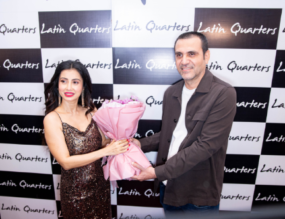
Welcome Festive Season in Glam, Latin Quarters Launches new #PujoBling Collection with Monami Ghosh
by WOT




